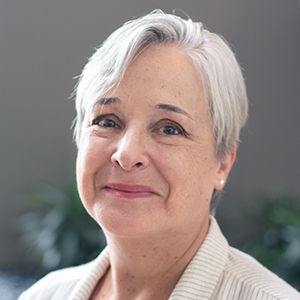Good fellows
As a magazine, we at ASBMB Today put our work in print and online for all the world to see. So, when we get something wrong, someone tells us — usually fast. We do our best to get everything right, and we’re quick to correct our mistakes. Sometimes we even learn something in the process of correction.
That was the case after we posted the names of the 2022 American Society for Biochemistry and Molecular Biology fellows on our website in early February. The introduction referred to the fellows as “our most distinguished members,” and that elicited a gentle — and educational — correction from Judith Bond, who developed the ASBMB fellows program with the society’s Membership Committee, chaired by Ed Eisenstein.
“Ed and I were very careful to say ‘designation as a fellow recognizes outstanding commitment to the ASBMB through participation in the Society in addition to (other) accomplishments,’” Bond wrote. “Our ‘most distinguished members’ would include Nobel laureates and other highly respected biochemists and molecular biologists, but if they have not participated in the Society in a meaningful way (through committees, leadership, organization of activities), they were not chosen as a fellow.”
This made me stop and think. With all the logistical challenges of collecting biographies and photos for the magazine and the website, I’m not sure I’d ever considered the criteria for being a fellow. I think it blurred in my mind with being an award winner. But this focus on commitment to the society makes a wonderful kind of sense. To be a fellow, a member must be generous with time and talent — not just someone whose CV includes pages of individual BMB achievements.
And reading the essays we've linked to below, written by four members of the inaugural class of fellows named in 2021, I was struck by the joy in their generosity. Fred Guengerich, Adele Wolfson, Dan Raben and Kerry-Anne Rye have given countless hours to the ASBMB and its journals as committee members and editors and so much more. Yet they make it seem like they’re doing the receiving rather than the giving. They stress the rewards of spending time with other members of the society and of seeing all it can do (with their help – but they mostly don’t say that).
This is probably the strongest argument we can make for getting involved — actively involved — with the ASBMB. Sure, you’ll need to give some time and talent. But think of all the good you get in return.
Essays by 2021 ASBMB fellows
Bonding over biochemistry
Fred Guengerich
Connecting by committee
Adele Wolfson
A journey with scientists
Dan Raben
Making a bigger footprint
Kelly-Anne Rye
Enjoy reading ASBMB Today?
Become a member to receive the print edition four times a year and the digital edition monthly.
Learn moreGet the latest from ASBMB Today
Enter your email address, and we’ll send you a weekly email with recent articles, interviews and more.
Latest in Opinions
Opinions highlights or most popular articles

Women’s health cannot leave rare diseases behind
A physician living with lymphangioleiomyomatosis and a basic scientist explain why patient-driven, trial-ready research is essential to turning momentum into meaningful progress.

Making my spicy brain work for me
Researcher Reid Blanchett reflects on her journey navigating mental health struggles through graduate school. She found a new path in bioinformatics, proving that science can be flexible, forgiving and full of second chances.

The tortoise wins: How slowing down saved my Ph.D.
Graduate student Amy Bounds reflects on how slowing down in the lab not only improved her relationship with work but also made her a more productive scientist.

How pediatric cataracts shaped my scientific journey
Undergraduate student Grace Jones shares how she transformed her childhood cataract diagnosis into a scientific purpose. She explores how biochemistry can bring a clearer vision to others, and how personal history can shape discovery.

Debugging my code and teaching with ChatGPT
AI tools like ChatGPT have changed the way an assistant professor teaches and does research. But, he asserts that real growth still comes from struggle, and educators must help students use AI wisely — as scaffolds, not shortcuts.

AI in the lab: The power of smarter questions
An assistant professor discusses AI's evolution from a buzzword to a trusted research partner. It helps streamline reviews, troubleshoot code, save time and spark ideas, but its success relies on combining AI with expertise and critical thinking.

